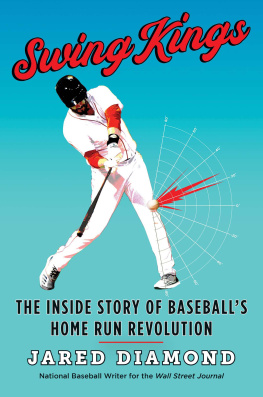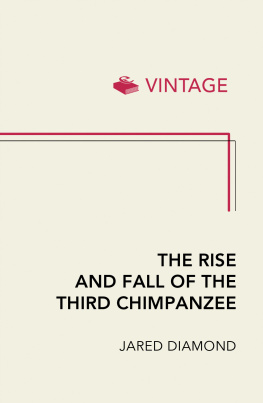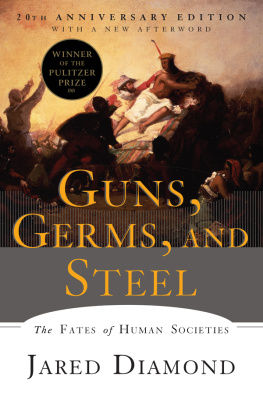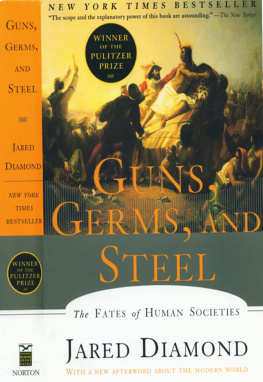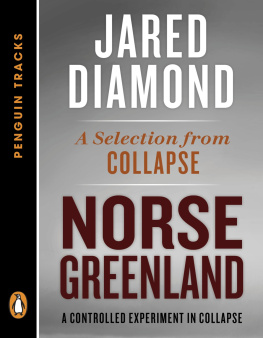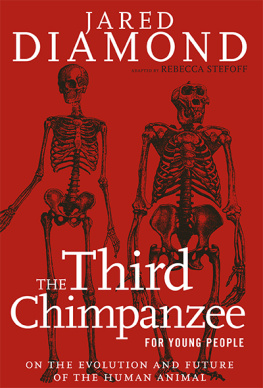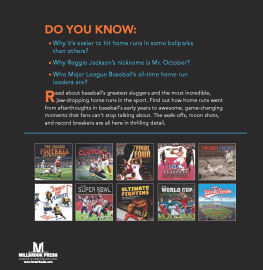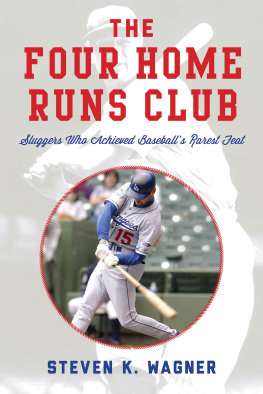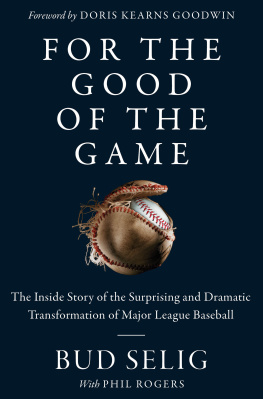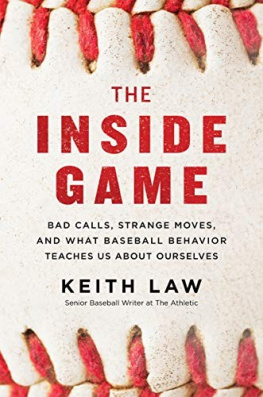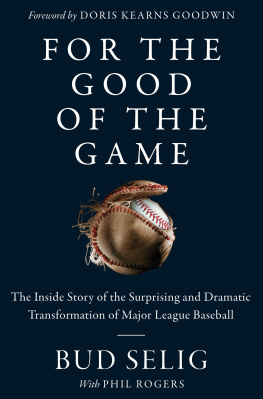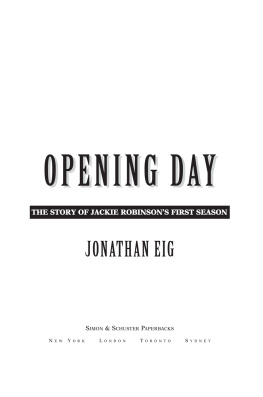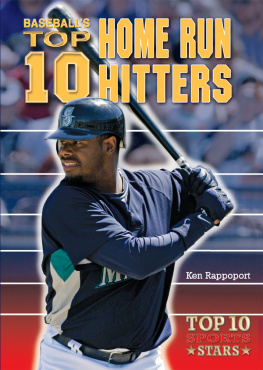Contents
Guide
To all the people ever told they
werent good enough
Contents
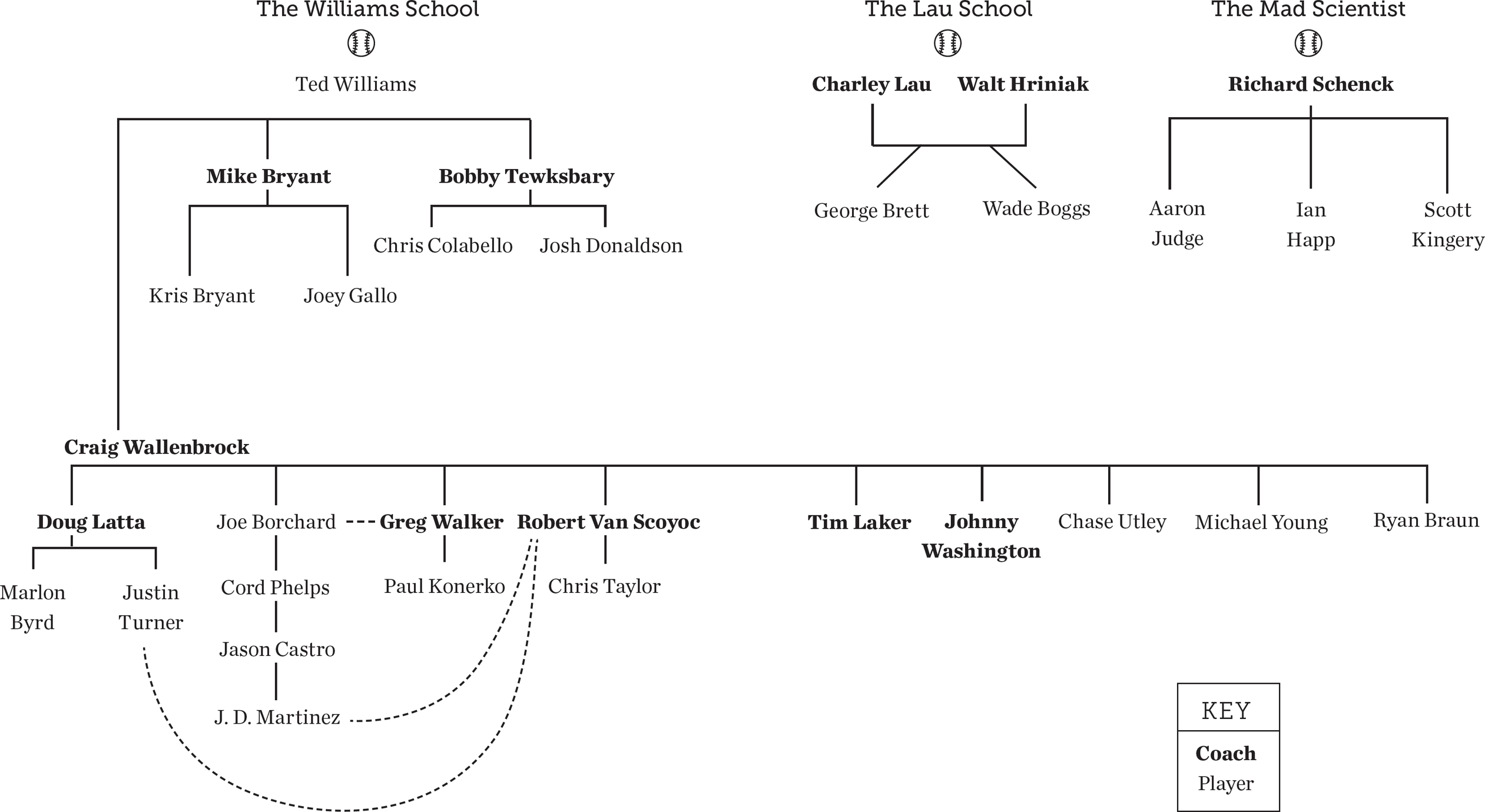
The sun shone bright over Dean Field one warm weekend morning, bathing Scarsdale High Schools baseball park in a beautiful summertime glow. I was 15, representing my town in a travel league against teams from around the area. There was no fence in right field at this point in my life. One would be constructed later. For now, there was just a large, steep hill, the base of which sat more than 300 feet from home plate and extended straight up until it reached Post Road high above the outfield. It took quite a drive to reach that hill, and as a left-handed batter, I had always dreamed of hitting a ball up onto it. That hill seemed so far away yet so close, as if it were mocking me every time a fly ball fell short. Reaching that hill represented strength. It represented power. It represented the culmination of all the hours I had spent in my life thus far playing a game that would never love me anywhere near as much as I loved it. If I could just drive a ball onto that hill, all the work I had put in would mean something.
Our opponent that day was Dobbs Ferry, a little village located on the Hudson River. As I warmed up, nothing felt any different than it ever had before. It was just another game in a summer full of them. Except this game was different from any other I had ever played in. In my first at-bat, I crushed a majestic fly ball well beyond the reach of any defenders glove. When I stepped up to the plate the next time, the opposing right fielder took a couple of steps back out of respect for my newfound power stroke, and again I rocketed a pitch well over his head, the ball bouncing up the hill. By my third at-bat the right fielder had decided that my first two bombs were no fluke, and he played so deep that it would be almost impossible for any ball to land behind him. Yet somehow, for the third time that day, I once again sent a thunderous fly ball to the hill, another mammoth hit that nobody could corral. Three at-bats, three titanic blasts, each one farther than the last, and farther than any other balls I had ever hit before.
I grew up in Scarsdale, New York, a small town located in Westchester County, about a half-hour ride from Midtown Manhattan on the express train. More than anything, I wanted to play baseball, long before I set my sights on a career covering the game for the Wall Street Journal, which Ive had the pleasure of doing since 2013.
I was practically born with a bat in my hands. A near-congenital love of baseball had been passed down to me by my father and my grandfather before him. My birth announcement was a photograph of me as an infant, swaddled in blankets, on a pretend baseball card, with a full collection of statistics on the back. I never stood a chance.
The problem was that while I knew how to hold the bat just fine, I wasnt all that good at swinging it. When I was a child, my dad would bring me out to a field somewhere for solo batting practice practically every night from the time the winters last snow melted until the next years frost arrived. He is blessed with the sort of magical right arm that never seems to tire, so I would swing and swing and swing until my hands were bleeding and covered with blisters. I still have the calluses to show for it.
In spite of my limited athletic abilitymy awkward, lumbering running style remains a source of great mockery among my friendsI worked myself into a decent enough hitter. I smacked a few home runs in Little League, batted in the middle of the lineup for teams through my early years of high school, and spent a year on the varsity roster. I was good. Or at least, I wasnt abjectly terrible by the standards of my little corner of suburbia. But true hitting, that indescribable feeling of the bat connecting with the ball and then watching it soar over everybodys heads, the kind of hitting that forces people to look at each other and say, How far did that go? remained elusive and tantalizing. I wanted to experience it more and more with each boring ground-ball single up the middle. I just didnt know how to do it.
Except for that one magical day.
My teammates, who thought that they knew my skill set after nearly a decade of watching me hit, were thrilled. The umpire was shocked. It was like a fantasy. Anybody who had seen me at the plate that day wouldve walked away from the field convinced that I had a future as a ballplayer, that I was something special. But heres the thing: I had no idea how I managed to pull that off. As far as I knew, I wasnt doing anything differently from what I had always done. I was swinging the same way I always hadonly the ball was exploding off my bat and flying to places I never previously imagined I could reach. It was like a scene out of The Natural, with me filling in for Robert Redford.
I returned for my next game a few days later emboldened, ready to continue my new life as a superstar slugger destined for greatness. But when I stepped up to the plate, it was like the previous game had never happened. The thunder in my bat had reverted once again to a gentle breeze. I was a mere mortal, tapping grounders to second base like I always had.
I spent the rest of my baseball-playing days trying to recapture the magic of The Game that afternoon at Dean Field. I replayed the at-bats over and over in my head, desperate to unlock the secret to what I had done. The Game continued to haunt me long after I put away my spikes for the final time. My father and I had countless conversations about it through the years, until our words were largely replaced by longing sighs for what could have been. Ive relayed the story to my wife, to my friends, to my colleagues enough times that they have it memorized. Im not entirely sure if they all believe it happened in quite the way I tell the tale, but theyre usually polite enough to humor me. Sometimes I wonder if I imagined the whole thing, if its some false memory created in the deepest recesses of my subconscious. Even now, playing in beer-league softball games on unkempt fields scattered around New York City, I cling in vain to the belief that the power I kindled on that day more than 15 years ago will somehow return. It never has. It probably never will. But for one day, for reasons I may never fully understand, I conquered the skill that is widely considered to be the toughest in all of sports.
I had found the perfect swingcompletely by accident. The only question was: How?
The Los Angeles Dodgers entered the 2019 baseball season saddled with pressure, facing the wrath of an enormous and passionate fan base across Southern California unwilling to accept any more heartbreak. For the past six years, the Dodgers had served as the ultimate tease, raising expectations only to tear them down, leaving behind the sort of profound discontentment that comes only with unconsummated success.
From 2013 through 2018, the Dodgers won more games than any other team in the sport. They won six consecutive National League West titles, a reign of supremacy unmatched in any division in the decade. In their last two playoff runs they had reached the World Series.
But despite all of that, the Dodgers couldnt escape one simple fact: both times they went to the Fall Classic, they lost. In 2017, the Houston Astros outlasted them in a seven-game thriller. A year later, the Boston Red Sox steamrolled them in five. All told, the Dodgersone of baseballs most storied franchiseshadnt won a championship since 1988. Over time, frustrations about the Dodgers gave way to anger that appeared to be on the verge of boiling over as 2019 was set to begin. It reached a fever pitch when the Dodgers sat out the sweepstakes to acquire two of the most heralded free agents in recent memory, Bryce Harper and Manny Machado, showing surprising austerity for a team with a budget as gigantic as the Dodgers. Sure, the Dodgers were good. There was no doubt about that. But were they as good as they could be?
Next page
